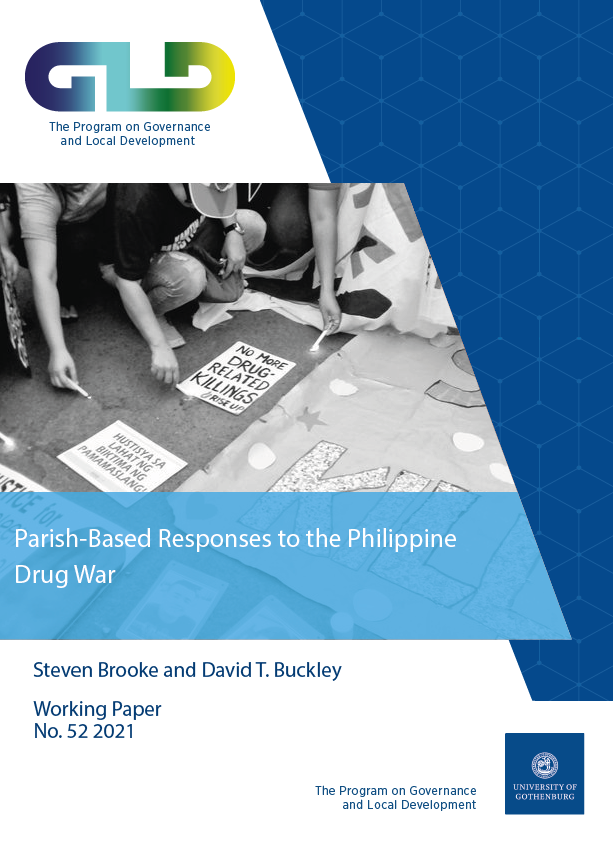No.52 Parish-Based Responses to the Philippine Drug War
Steven Brooke and David T. Buckley
Abstract
How do local religious institutions protect communities from state-sanctioned violence? This general question has taken on particular importance in the Philippines, where populist President Rodrigo Duterte has overseen a “Drug War” that has killed tens of thousands of citizens while triggering opposition from prominent religious elites. In this paper, the authors use an original, in-depth survey of Catholic priests and lay parish leaders in an urban area heavily impacted by Drug War violence to catalog how dozens of local parishes mobilize to protect their communities. They find two broad types of mechanisms in operation: directly impacting the localized production of violence and indirectly altering characteristics of the local community in ways likely to limit violence. Quantitative evidence documents the widespread existence of both direct and indirect mechanisms of community protection is consistent with the more limited presence of some of the highest risk Drug War responses and demonstrates an association between parish capacity and these protective mechanisms. Qualitative evidence traces the links between parish activities and particular cases of community protection, highlighting the coexistence of rationalistic and normative logics through which institutions reduce violence. Interviews also foreground some of the obstacles that even highly motivated and capacious institutions face in organizing local protection.
